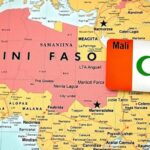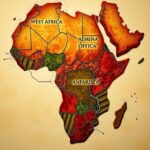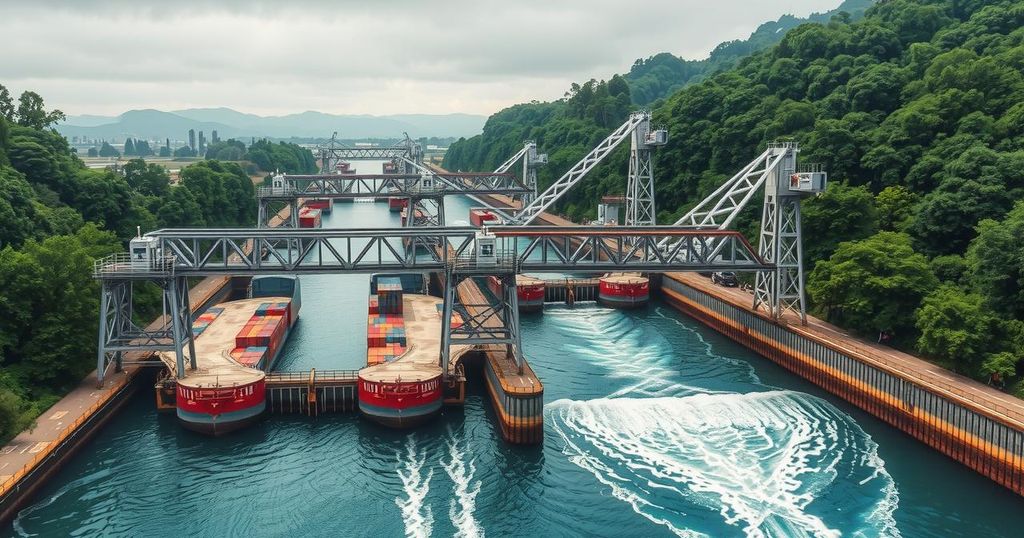Challenges Facing ECOWAS After Departure of Junta-Led Nations
ECOWAS is facing challenges after Mali, Niger, and Burkina Faso left the bloc to form the Alliance of Sahel States (AES), marking a historic first in its 50-year existence. The withdrawal diminishes the political authority of ECOWAS, which was designed to promote regional integration and cooperation. Severe sanctions against Niger led to the countries severing ties with Western allies and embracing new military support from Russia. ECOWAS now must navigate a complex relationship with the AES while maintaining economic connections.
West Africa’s regional bloc, ECOWAS, is encountering significant challenges following the exit of three junta-led nations, namely Mali, Niger, and Burkina Faso. These nations left ECOWAS to form their own alliance, the Alliance of Sahel States (AES), thereby diminishing the bloc’s political authority. The withdrawal, announced in January 2024, marks a historic occurrence, being the first of its kind in ECOWAS’s 50-year tenure, as the bloc is now reduced to twelve member states.
Established in 1975, ECOWAS was designed to foster political stability and economic integration among its fifteen member nations. The bloc facilitates visa-free travel and access to a $700 billion market for approximately 400 million people. However, it faces a legitimacy crisis, as many West Africans perceive the organization as serving the interests of national leaders rather than the general populace.
The deteriorating relations between ECOWAS and the aforementioned countries stem from the implementation of severe sanctions on Niger, following the military takeover in that nation. During this period, ECOWAS adopted stringent punitive measures, including closing borders and suspending financial transactions, which prompted Mali, Niger, and Burkina Faso to view these actions as extreme and against the bloc’s original ideals.
Post-exit, the three countries have severed military partnerships with the United States and France, instead opting for Russian military support. Though ECOWAS has sought to mend relations and has lifted some sanctions, the AES has declined further negotiation efforts, reinforcing the divide between the groups.
Looking ahead, Mali, Niger, and Burkina Faso have initiated the use of their travel documentation while maintaining trade relations under the West African Economic and Monetary Union. Nevertheless, as the deadline for discussions approaches in July, analysts express skepticism regarding the AES nations reconsidering their departure from ECOWAS, raising concerns over the stability and security capabilities of the bloc moving forward.
The Economic Community of West African States (ECOWAS) is a prominent political and economic organization comprising fifteen member states in West Africa. Founded in 1975, it aims to promote economic integration and facilitate cooperation on various issues among its members. With a significant population served, ECOWAS guarantees benefits like visa-free travel, yet it faces legitimacy issues as its popularity wanes among the populace, who feel disconnected from the bloc’s leadership decisions. The organization’s capacity to manage regional security crises, particularly those stemming from instability in the Sahel region, is now increasingly under scrutiny.
In conclusion, the departure of Mali, Niger, and Burkina Faso from ECOWAS poses considerable challenges to the bloc’s authority and effectiveness in West Africa. The formation of the AES reflects a significant shift in regional alliances and might lead to a diminished capacity for ECOWAS to address security issues and foster economic cooperation effectively. The future trajectory of ECOWAS remains uncertain, hinging on its ability to regain legitimacy and the willingness of the exiting nations to reconsider their stance.
Original Source: apnews.com








Post Comment